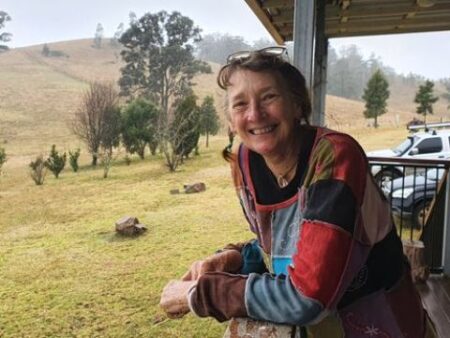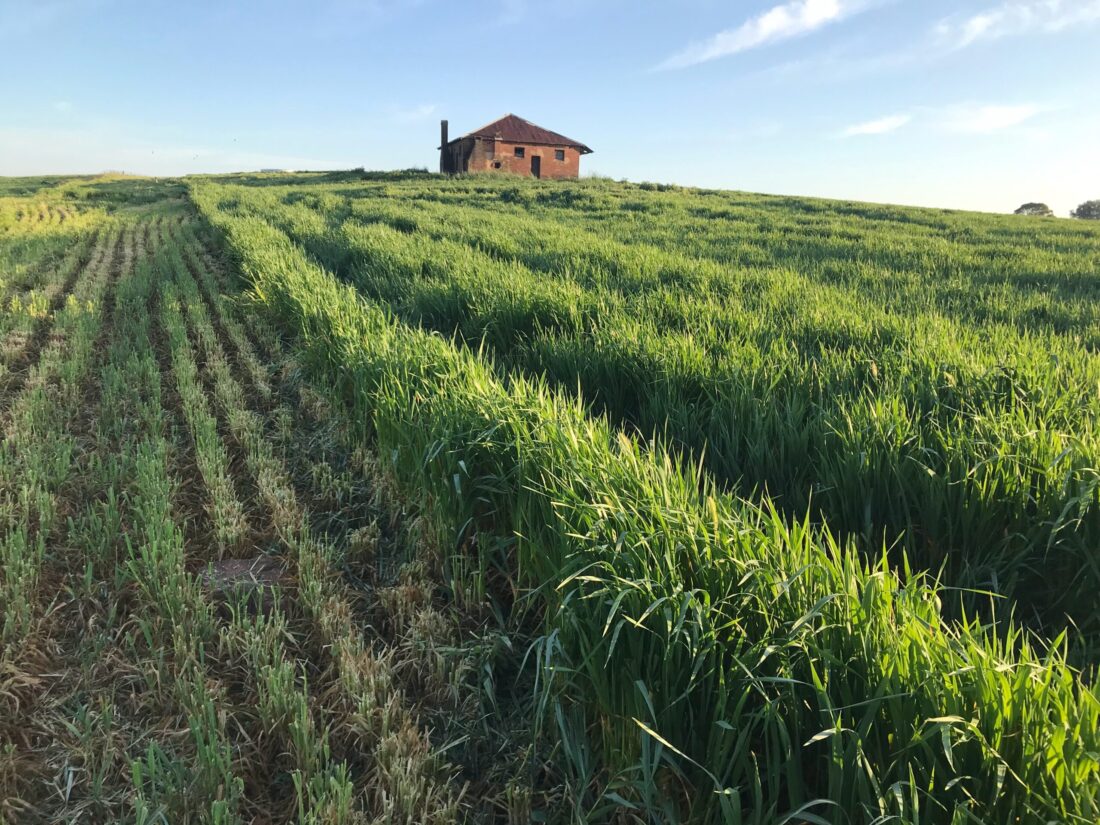 Guided by an inter-generational connection to the land and a strong concern for sustainable practices, Charles Sturt University PhD candidate Linda Wirf is aiming to increase the influence, visibility and voice of women in Australian agriculture.
Guided by an inter-generational connection to the land and a strong concern for sustainable practices, Charles Sturt University PhD candidate Linda Wirf is aiming to increase the influence, visibility and voice of women in Australian agriculture.
Linda is completing her PhD ‘Beyond adoption: gendered knowledges in agricultural practice change in Australia’ with a scholarship from the Cooperative Research Centre for High Performance Soils (Soil CRC).
Linda’s research is part of the Investing in High Performance Soils program run by the Soil CRC across several sites in Australia including Central West NSW. Her research aims to contribute by creating spaces for transformation in agriculture practice by including women’s knowledges and perspectives.
Having lived most of her life on the land, Linda has a strong concern for regenerative and environmentally sustainable practices. This affinity is shared by the women of Linda’s family – her mother grew up on a dairy farm that was worked mostly by her grandmother.
Linda’s lived experience strongly informs her research, “The concept of a woman farmer is part of my history and psyche,” she says. “I have experienced many of the phenomena that impact farmers and their land management decisions, including bushfires, droughts, floods, remoteness and isolation, feral animals, and invasive weed species.”
Witnessing the environmental impacts of intensive agriculture practices has had a profound influence. According to Linda, environmental degradation poses a significant threat and constraint to agricultural industries. “My worldview is shaped by my belief in the need for agriculture practice to become more regenerative and environmentally sustainable and I believe that women farmers have a key role to play in this transition,” she says.
Assisting farmers to create a space for transformation in agriculture practice is a core aspiration. The inclusion of women’s knowledge and perspectives is key to achieving this. But historical norms have significant influence on farming practices here in Australia, “Gendered roles on family farms identify men as the farmer and women as the farmer’s wife” Linda says.
“Rural masculinity is associated with hard outdoor work and rural femininity is associated with caring for the family and domestic indoor work. Even though women perform many tasks that are integral to the running of the farm, this work is constructed as helping their male partner, rather than being a farmer.”
Linda suggests the inclusion of women’s knowledge and perspectives offers opportunities for significant and positive change, “Women are currently an untapped resource in many farming enterprises in Australia despite most farms being family owned and managed.”
“I think recognising and including multiple perspectives will contribute to ensuring agriculture is resilient and adaptive into the future,” she says.
Adopting a feminist approach, Linda’s research utilises a constructivist grounded theory methodology. Linda conducted interviews with women and men farmers early in 2022. Focus group sessions with women farmers in Central West NSW and the Eyre Peninsula in South Australia later this year will result in data that is co-created between the research participants and the researcher. Data is foregrounding the experiences of women and highlighting the role they can play in bringing about change.
“The focus groups with women farmers will facilitate rich co-creation of data through discussion and sharing ideas about women’s own perspectives on how they participate in and contribute to land management and agriculture practice,” she says.
“This is an important part of my research, to explore the unique knowledges that women farmers have, the barriers to their participation in agriculture and what is needed to facilitate better inclusion of women’s knowledge.”
Linda highlights a wealth of literature showing that women have greater awareness and concern for environmental issues associated with agriculture. This lends itself to a commitment to wider landscape ecological health, “Women are generally more open to framing agriculture through alternative paradigms with a focus on sustainability and regenerative or conservation practices,” she says.
Linda highlights the association between masculinity and conventional or traditional agricultural paradigms based on intensive and input heavy practices. “Agriculture in Australia is currently stuck in a dominant masculine conventional paradigm that maintains the status quo and perpetuates the environmental degradation that threatens agricultural sustainability into the future,” she says.
Linda hopes her research can help change this situation, “Confronting the normative gendered stereotyping in rural Australia that marginalises women in agricultural practice and reinforces hegemonic masculinity on family farms may be the key to transformative change.”
Linda’s project builds on previous research undertaken during her Masters, which involved working with Anmatyerre women in Central Australia and focused on empowering their knowledge in unfair water rights processes that privileged men’s perspectives. It was an experience that deepened her understanding of gendered roles and the importance of including both women and men’s perspectives in conservation and resource management.
“My current research builds on this previous experience and explores the concept of gendered knowledges in agricultural contexts to understand how empowering women farmer’s knowledges and collaborative knowledge sharing can contribute to agricultural sustainability in Australia,” she says.
Nearly a year and a half into her PhD, Linda’s passion for her research topic is obvious. She has found the graduate research journey highly rewarding thus far, “I enjoyed interviewing women and men farmers in the first part of my study, and I am fascinated by the results that are emerging from my data so far. I also undertook a visual analysis of images on agricultural organisation websites, and it is interesting to see the themes emerging across both sets of data.”
Based at Charles Sturt University with co-supervision from Southern Cross University, Linda says the arrangement is working well, “I have learnt so much from my supervisory team (which includes Prof. Catherine Allan from CSU, Dr. Hanabeth Luke of SCU and Dr. Sarina Kilham of CSU) and I’m grateful for their wisdom and knowledge.”
“It is also great to be part of a wider academic community and to access the excellent learning and support available to graduate research students at CSU,” she says.
In terms of advice to those considering a PhD, Linda suggests inquisitiveness, dedication and a good supervisory arrangement are key. “You need to be curious and genuinely interested in your topic and be prepared to focus intensively on your research over a relatively long time,” she says.
“It is a major undertaking but a great experience if you are ready for it. Find a supervisor you can connect with and enjoy the PhD journey!”
Image credits: profile image provided by Linda Wirf; header image by Chilli Charlie via Unsplash.

